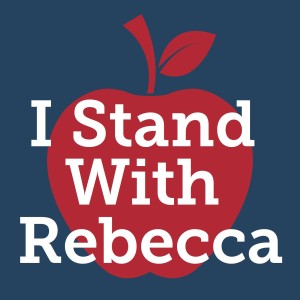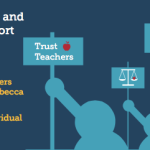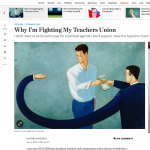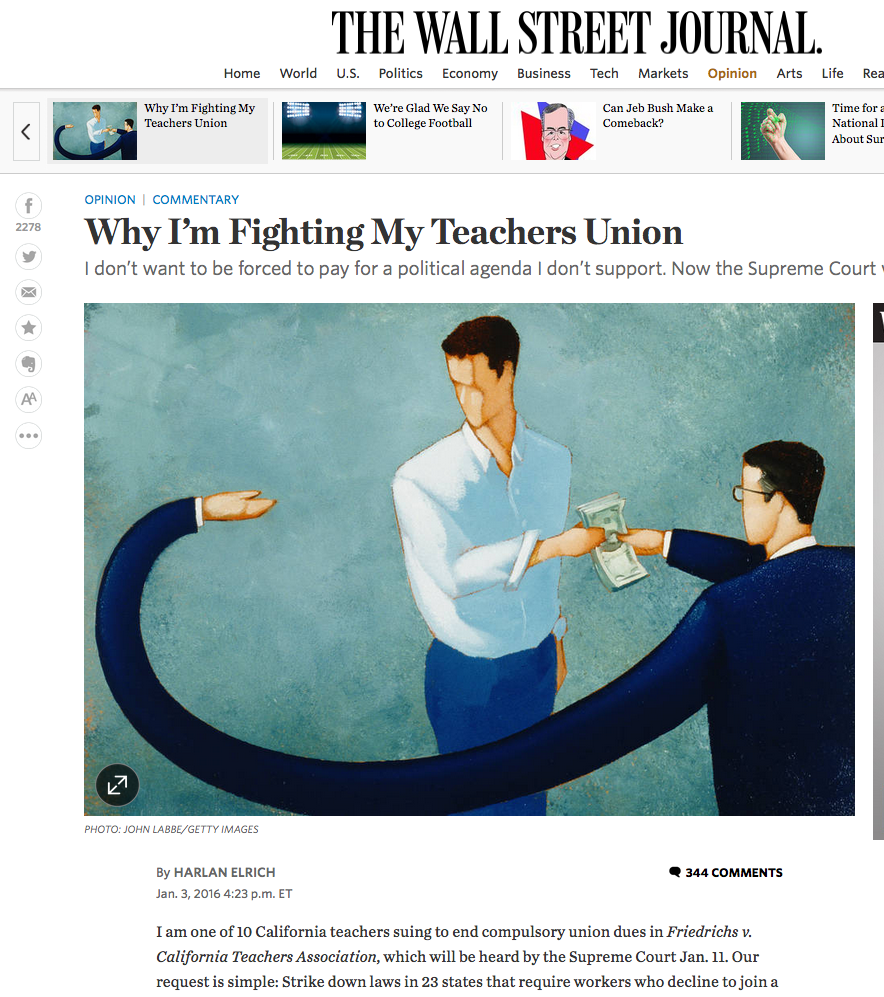January 11, 2016
Washington, D.C.
Teachers and parents from around the nation today at 9:00 am will gather outside of the U.S. Supreme Court in support of 10 California teachers as oral arguments are heard in their challenge, Friedrichs v. California Teachers Association et al., against the state requirement that they must fund their teacher’s union, even if they aren’t members.
“Paying fees to a union should not be a prerequisite for teaching,” said Jeanne Allen, Founder and President Emeritus of The Center for Education Reform. “Teachers – like all other Americans – should be permitted the freedom to join and choose to pay for the option of joining any organization, union or not.”
The plaintiffs in Friedrichs are asking the High Court to strike down Abood v. Detroit Board of Education, a 1977 case that permitted hundreds of dollars per teacher of “agency fees” to be deducted automatically from teacher paychecks regardless of whether or not they have chosen to be a union member. The 10 teachers in the California Friedrichs case, along with countless of their colleagues nationwide, believe they do not benefit from collective bargaining agreements because not only is it inherently political, but it actually hurts the potential to improve schools.
“Research indicates that next to parents and family, a teacher is the most important influence in a child’s life,” said Allen. “Laws that ensure teachers are rewarded, retained and advanced based on how they perform in adding value to the students who they teach, along with skills and responsibilities, have the potential to recapture and retain our high quality educators who want to be treated as professionals. The political clout behind unions however – with the smaller of the two teacher’s unions, The American Federation of Teachers, contributing $20 million this year’s election cycle – has sadly prevented real change from happening to policies like collective bargaining and agency fees at the state level.”
“This year, workplace freedom may become reality for teachers,” Allen continued, “but the first victory has already been achieved. These courageous teachers have exposed the public to the issue of education union collective bargaining power, something known only outside of education to all but the elite.”
More than fifty percent of the general public do not know how teachers are paid, how they are hired and retained, or that unions are even part of influencing mandates about all aspects of education’s human capital supply.
“Whether one agrees or not with the premise at the heart of the Friedrichs case, with education central to our personal productivity and our global success, we should welcome the controversy and the debate as a pathway to progress,” noted Allen.
The Supreme Court is expected to make a decision at the end of June 2016.
















Support for Rebecca Friedrichs: Rally Unites Those Standing For Teacher Freedom
“We trust the teachers!” “Stand with Rebecca!” “Do it for the kids!” These were the overwhelming chants heard from the small but mighty forces of the rally on the steps of the Supreme Court this morning. These supporters came out and bared the freezing temperatures to stand by Rebecca Friedrichs, the public face of the heavily discussed court case, Friedrichs V. California Teacher’s Association. Teachers, political figures, and different organizations all spoke valiantly this morning to state why they “Stand with Rebecca”. Even though the numbers were few, those who were physically on Capitol Hill this morning stood to represent the innumerable other supporters across the country.
These past few weeks have been filled to the brim with several different people looking to show their support for this case, all leading up to the hearing this morning. If you didn’t already know at this point, Rebecca Friedrichs is an elementary school teacher from California working to exercise her First Amendment right. She, along with many other teachers, wish to have the ability to choose where the money in their paychecks go. The point that was continuously reiterated in this morning’s rally, and what many people don’t seem to fully understand, is that this case isn’t about the unions. It’s about allowing the teacher’s the choice to either join the union, or opt out. Currently, even those teachers who choose not to participate in the union still have to pay agency fees for the collective bargaining of the unions, even if they don’t agree with the union’s policies.
While the union argues that the money they collect from their non-members goes towards their efforts in supporting all teachers, Friedrichs counters by saying that this money is still being used to push items that she, and the other teachers, may not believe in. This morning it was made clear by several different speakers at the rally that when their money goes into those unions that they don’t support, their efforts as teachers continue to be limited. And unfortunately, the ones who pay the price of this limitation are the children. One prevailing theme that arose from the forces on the steps of the Supreme Court this morning was that these efforts are being pushed because teachers deserve to be treated the same as any other professional, with the right to choose the way in which they can be most effective at their job. If that is as a member of the union, great, if it isn’t, that’s still great.
Regardless of the teacher’s affiliation, they deserve the right to choose whether or not they want to participate in the union, so that they can continue to have the ability to do their very best in priming this nation’s future. So, hopefully when the decision is finally made later this year the judges choose to “Do it for the kids!” and “Stand with Rebecca”..
Written by: Hanna Socha CER Intern
Additional Resources:
For more information on the rally and the case, click here.
Press Release: Teachers Rally As Supreme Court Hears Teacher Freedom Case
High Court Takes on Teacher Freedom, National Review, January 11, 2016